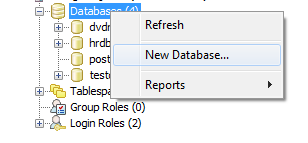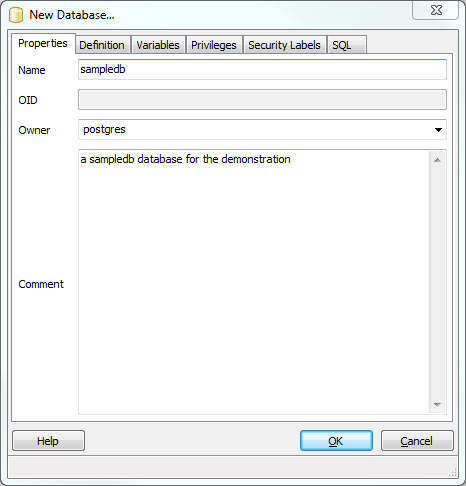
We are going to discuss the most interviewer asked PostgreSQL interview questions for the acknowledgment of future aspirants in this niche. PostgreSQL is one of the most advanced, object-relational database management systems and open-source developed by PostgreSQL Global Development Group at Berkeley Computer Science Department, University of California. With its strong hand on proven data integrity, reliability, architecture, extensibility, and excellent feature set, PostgreSQL has earned the prominence of being a superior and robust solution globally, thus highly increasing the employment base for this niche.
With the operation freedom of all major operating systems including UNIX, Windows, Linux, and Mac OS X; PostgreSQL supports images, text, video as well as sound, and includes programming interfaces for C, C++, Perl, Java, Tcl, Ruby, and Open Database Connectivity.
| Quick Questions about PostgreSQL | |
|---|---|
| What is the Latest Version of PostgreSQL? | 13.1 released on 12 November 2020 |
| When was PostgreSQL Initial released? | 8th July 1996 |
| What language does PostgreSQL use? | C Language |
| Who developed PostgreSQL? | Michael Stonebraker |
| What operating system use PostgreSQL? | Windows, Linux, macOS, OpenBSD |
Now, let’s discuss an advanced set of PostgreSQL interview questions further above for candidates searching for a near-future job change or going to start their career from the ground level.
Most Frequently Asked PostgreSQL Interview Questions
Here in this article, we will be listing frequently asked PostgreSQL Interview Questions and Answers with the belief that they will be helpful for you to gain higher marks. Also, to let you know that this article has been written under the guidance of industry professionals and covered all the current competencies.
It’s a general purposed and advance object-relational database management system used to add custom functions developed using a various programming language such as C, C++, Java, etc. Designed to be extensible, PostgreSQL implements MVCC or multi-version concurrency control.
PostgreSQL has many exciting features added to it. Here are a few of them:
- By protecting data integrity, users can build a fault-tolerant environment.
- Easy compatibility with significant platforms, languages, and middleware.
- Multi-version concurrency control is supported.
- The client-server network architecture is supported.
- Trigger-based and log-based replication SSL
- High availability and standby server
- Download Windows PostgreSQL one-click the installer and run it.
- Choose to install PostgreSQL as a Windows Service.
- If needed, change the installation directory and click next
- Choose the components you want to install & click next
- If needed, change the data location
- Enter the user password and if necessary make a note of it.
- Let the port number by the default
- Once the installation is complete, uncheck the Stack Builder prompt and click finish
- Now go to start menu, search and start pgAdmin 4
- Click on servers present on the pgAdmin homepage and choose Postgre SQL 10
- Enter the superuser password, and the dashboard will begin for your use
As the default repositories of Ubuntu contain Postgres packages, we can install it easily using the apt packaging system. Refresh the local package index and then install the Postgres packages and a -contrib package which adds additional functionality and utilities. The PostgreSQL software installation process is finished now.
PostgreSQL supports various data types, which includes:
- Boolean
- Numeric types
- Character types
- Temporal types
- Array
- UUID
- JSON
- store
- Special types such as geometric data and particular types
To change the records type of a column, you use the ALTER TABLE assertion as follows:
ALTER TABLE users
ALTER COLUMN username[SET DATA] TYPE new_data_type;
In PostgreSQL, the DUAL table is a special one-column, one-row table present by default. It is created as a view to easing porting problems, which allows code to remain compatible with Oracle SQL without obstructing the Postgres parser.
PostgreSQL has no maximum database size, so users can put unlimited data into it. But, the table, row, and field size are limited. The row and indexes are also universal for its users.
PostgreSQL usually stores its desk facts in chunks of 8KB. The quantity of these blocks is confined to a 32-bit signed integer, giving the most desk dimension of 16TB.
The ctid field exists in every PostgreSQL table. It is unique for every record in a table and denotes the turple location. It can be used to delete records. The thing to remember, we should only use ctid if we have absolutely no other unique identifier to use.
| S.no | PostgreSQL | MySQL |
|---|---|---|
| 1. | PostgreSQL is open-source software. | MySQL has several paid editions. |
| 2. | It is ACID compliant from the ground up. | It is only ACID compliant when suing NDB and InnoDB Cluster Storage engines. |
| 3. | Largely SQL compliant | Partially compliant to some of the SQL versions |
| 4. | Used for large systems where to write and read speeds are crucial, and data need to be validated. | Used for web-based projects that require a database for data transaction |
In PostgreSQL, table partitioning refers to splitting a large table into smaller sections. PostgreSQL supports list and range partitioning via table heritance. Users have to create each partition as a child table of the master table.
Even though PostgreSQL has unlimited database size for users, but it has a limit for maximum table size. The maximum table size is set to 32 TB.
Note: This is very essential PostgreSQL interview questions.
| S.no | PostgreSQL | SQLServer |
|---|---|---|
| 1. | Microsoft’s relational DBMS | Widely used open source object-relational database management system |
| 2. | Implementation language is C. | The implementation language is C++. |
| 3. | Supports server is operating systems such as HP-UX, NetBSD, Solaris, Windows, Unix, Linux, and FreeBSD. | Supports only Linux and Windows. |
| 4. | Doesn’t has the in-memory capability. | Has in-memory capability. |
| S.no | Oracle | PostgreSQL |
|---|---|---|
| 1. | Mostly aid object-relational database management system | open source object-relational database management system |
| 2. | The implementation language is C. | Implementation language is C and C++. |
| 3. | Server operating systems here are OS X, Linux, Windows, z/OS, AIX, and HP-UX. | Server operating systems here are HP-UX, NetBSD, Solaris, Windows, Unix, Linux, and FreeBSD. |
| 4. | More database productivity | Less database productivity |
| 5. | Advance security options | Good security support but less compared to Oracle |
An explicit 'vacuum' call is made to update statistics in PostgreSQL. Users can also use the Analyze to perform so.
| S.no | PostgreSQL | MongoDB |
|---|---|---|
| 1. | It’s an object-relational database management system. | It uses JSON-like documents to store schema-free data. |
| 2. | uses tables, triggers, constraints, roles, stored procedures and views as the core components | Uses Key, Collection, Document, and Value. |
Multi-Version Concurrency Control (MVCC) is an advanced method used in PostgreSQL for improving the performance of a database in a multi-user environment. Unlike lock models in other databases, PostgreSQL uses a multi-version environment in which locks that are acquired for reading data don’t conflict with locks acquired for writing the data. Hence, making the process more compartmentalized and a lot faster.
In PostgreSQL, the index is a common way for database performance enhancement. It allows the database server to find the retrieve specific rows faster compared to without index. It also adds overhead to the database system as a whole, so users have to implement them sensibly.
Indexes are special lookup tables that are used by the database search engine to speed up data retrieval. Simply defining, an index is a pointer to a specific data in a table.
PostgreSQL provides several index types like Hash, B-tree, SP-GiST, BRIN, and GIN. All these types uses a separate algorithm that is best suited to queries.
You can use pg_ctl -D "C:\Program Files\PostgreSQL\9.6\data" start to start PostgreSQL on Windows.
First, you want to find the PostgreSQL database directory, it can be something like C:\Program Files\PostgreSQL\10.4\data. Then open Command Prompt and execute this command. Now use pg_ctl -D "C:\Program Files\PostgreSQL\9.6\data" stop to stop these service.
SHOW server_version;PgAdmin is a free, open-source PostgreSQL database administration GUI that is used in Microsoft Windows, Mac OS X, and Linux systems. PgAdmin is used for database server information retrieval, development process, Quality testing, and other ongoing maintenance.
Follow these steps to install PgAdmin:
- Launch pgAdmin 4.
- Go to the “Dashboard” tab, click on the “Quick Link” section and then click on “Add new Server”
- Now, select the “Connection” tab in the “Create-Server” window.
- Now, configure the connection as follows:
- Enter your server's IP address in the “Hostname/Address” field.
- Specify the “Port” as “5432”.
Write-ahead logging, or commonly known as, WAL, is an optimization used in PostgreSQL to minimize disk Input/Output while still minimizing the risk of data loss.
PostgreSQL stores its transaction logs in the following location
pg_wal folder of the data directory (Note: previous versions of PostgreSQL used a folder called pg_xlog – this folder was renamed in version 10 to increase the importance of the file within).
Follow these steps to successfully create a database in PostgreSQL using PgAdmin:
- Log into PostgreSQL using pgAdmin
- Now, go to the Databases section and right-click on it

- Now, enter the database name, owner and configure parameters and press OK after it is done.

A token can be a keyword, an identifier, a quoted identifier, a literal (or constant), or a distinctive personality symbol. Tokens are generally separated with the aid of whitespace (space, tab, newline), however, need not be if there is no ambiguity (which is usually only the case if an exceptional persona is adjoining to some other token type).
Reserved words in PostgreSQL are actually SQL keywords and other symbols having some sort of special meaning when being processed by the Relational Engine.
Follow these steps to carefully change the user password Postgres in Laravel:
- Step 1: Make yourself the “Postgres” system user (through the root user, sudo or via SSH public key verification)
- Step 2: Connect to the local server using “PSQL”
- Step 3: Type this meta-command of PSQL \password
It should look something like this:

A sequence in PostgreSQL is a special form of data that is created to generate multiple numeric identifiers in the PostgreSQL database. It is most often used to create sequences and artificial primary keys similar to Auto_Increment in MySQL. The basic role of sequences in PostgreSQL is to create unique identifiers between multiple rows inside a table.
The simplest way to check whether your server in PostgreSQL is running or not:
ps auxwww | grep postgres
In versions other than 8.3 you need to run this command
/Library/PostgreSQL/8.3/bin/postgres -D /Library/PostgreSQL/8.3/data
PgAdmin comes with built-in support to debug your Pl/PgSQL codes. However, in order to enable this, you need to compile and install a separate plug-in for PostgreSQL
Now, once you have set up a proper environment for debugging, go to edit /etc/postgresql/9.4/main/postgresql.conf and enable the debugger plugin.
In terms of learning databases, MySQL is perfect. It is the first choice for web-based projects merely requiring a database for transactions and nothing else. But, PostgreSQL is better in terms of functionalities and performance. It is more used in the execution of complex queries, data warehousing, and data analysis.
Here are the steps to back up a single database in PostgreSQL. We shall be using the pg_dump tool as it dumps out the content of all the objects in the database to a single file.
Step 1: First of all, navigate to the PostgreSQL BIN folder:
C:\>cd C:\Program Files\PostgreSQL\9.2\bin
Step 2: Now, we shall execute the pg_dump program and use the following method to back up the examples database to the example.tar file to the c:\pgbackup\ folder.
pg_dump -U postgres -W -F t examples > c:\pgbackup\examples.tar
Step 3: Here is your backed up database
c:\pgbackup\dvdrental.tar
The base directory in PostgreSQL (data_dir/base) is the folder is where PostgreSQL stores all the data you have inserted in your databases. It contains all the sub-directories which are used by a database in your clusters.
In PostgreSQL, the CTID field is one that exists in each and every PostgreSQL table, and it is unique for all records inside a table, which is used to denote the location of the tuples.
In PostgreSQL, a string constant is an arbitrary sequence of multiple characters that are bounded by single quotes (').
SELECT 'This' 'is' 'an' 'example'
Is equivalent to
SELECT 'This is an example'
Note that this is not the same as using double quotes (").
In PostgreSQL, the Overlay function allows users to replace a substring, which is starting at a specific position and having a specified length.
Here is the syntax for the Overlay Function:
overlay(<main_string> placing <replaced_string> <br>
from <starting_position> [ for <number_of_characters>] )
To get the first 10 records from a database in PostgreSQL, use the LIMIT command.
Here is an example of picking the first 10 records from a database called Example:
select * from users order by name desc LIMIT 0, 10
To find the cube root of ant given number in PostgreSQL, you can use the CBRT() function.
SELECT cbrt(729) AS "Cube Root";
Output - 9
To match a regular expression that is case insensitive, you can use the POSIX regular expression (~*) from the pattern matching operators.
'umesh' ~* '.*Umesh.*'
In PostgreSQL, an Inverted file is basically an index data structure used for mapping content to its location to a database file, within a document, or in sets of documents.
It is usually composed of all the distinct words found in a text and a list containing the occurrences of a word in the text.
The inverted file is widely used in a data structure for document retrieval systems in supporting a full-text search.
In PostgreSQL, GEQO stands for Genetic Query Optimization. It allows the PostgreSQL search query optimizer to support large joined queries in an effective manner using a non-exhaustive search technique.
In PostgreSQL, there are 4 bytes of unique integers by default.
The PostgreSQL functions palloc and malloc are used for allocating memory.
plsqlODBC is the official PostgreSQL driver. Besides that, there are other third-party ODBC drivers such as Devart, which shall cost you some money.